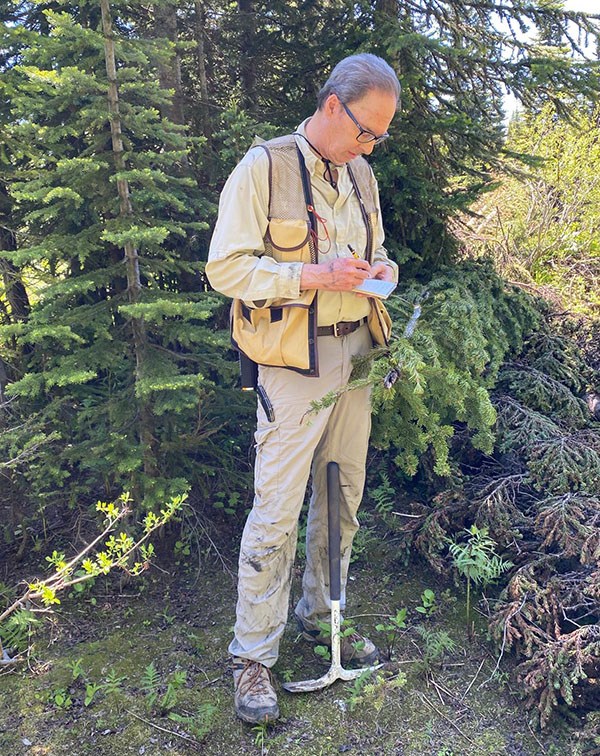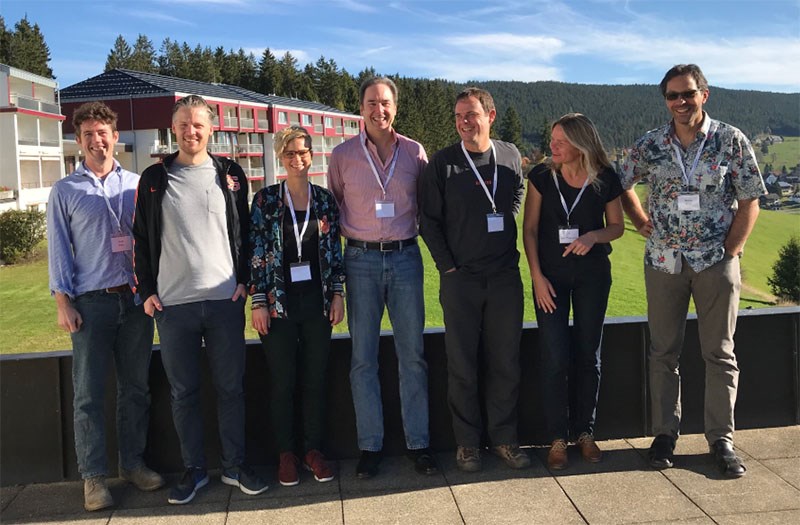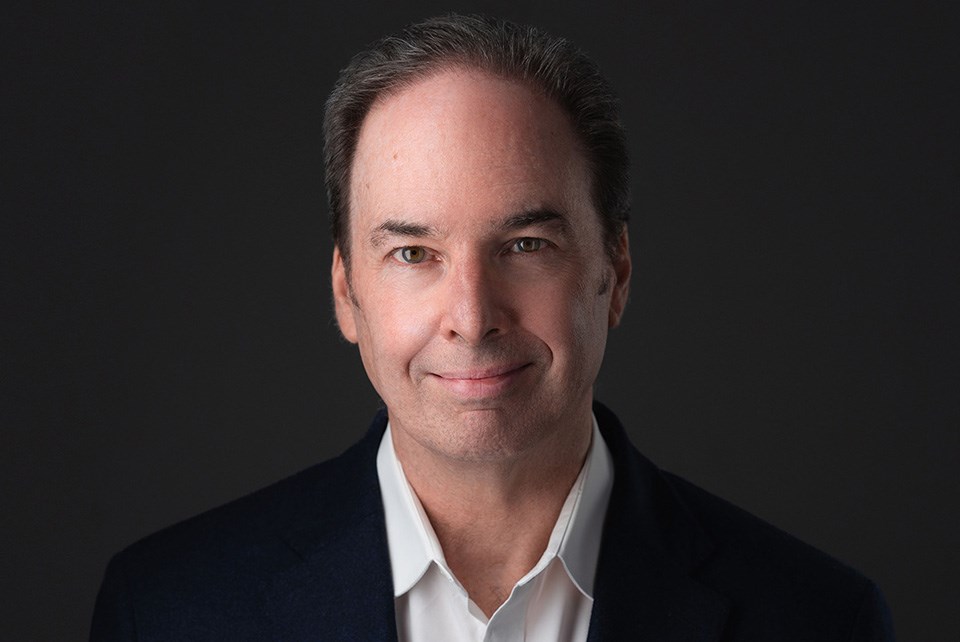SASKATOON — Dr. Jeffrey McDonnell (PhD), distinguished professor with the School of Environment and Sustainability (SENS) and associate director for the Global Institute for Water Security (GIWS) at the University of Saskatchewan (USask), has been made an Officer of the Order of Canada, one of the country’s highest civilian honours.
McDonnell was recognized for his decades of innovative work in watershed hydrology and his contributions to new scientific knowledge linked to water security. Since 1972, about 2,000 Canadians have been recognized with the level of Officer (OC) recognizing achievements and merit of a high degree, particularly in service to Canada or humanity.

Recent photo of Jeff conducting fieldwork on fire impacts on runoff generation in the North Okanagan, B.C. | Photo: submitted
“I feel incredibly lucky,” McDonnell said. “Lucky to have been born in Canada, lucky to have had the opportunities I’ve had, and lucky to work with so many amazing people along the way.”
Gov. Gen. Mary Simon announced 88 new appointees to the Order of Canada on December 18. Appointees include one Companion, 24 Officers, and 63 Members. Three appointments are promotions within the Order.
McDonnell’s impressive career in hydrology has taken him all over the world. After earning a PhD in forest hydrology from the University of Canterbury in New Zealand, he took on roles at Utah State University and later, Oregon State University where he was Richardson Chair of Watershed Science and University Distinguished Professor. He had an early stint at NASA’s Marshall Space Flight Center where he studied emerging issues related to climate change.
Over the years, McDonnell has received numerous accolades, including the Dalton Medal from the European Geosciences Union, the International Hydrology Prize from the International Association of Hydrological Sciences, UNESCO, the World Meteorological Organization, and induction as Fellow of the Royal Society of Canada.

Jeff McDonnell with former PhD student, Luke Pangle, in the field in the late 2000s. | Photo: Submitted
He has also served as President of the American Geophysical Union’s Hydrology Section and the International Association of Hydrological Sciences International Commission on Tracers.
Despite his extensive career and many accomplishments, hydrology wasn’t initially his focus. During his undergraduate fieldwork as a geologist in a remote area of the Yukon, McDonnell found himself up in a tree to escape yet another grizzly bear. It was at this moment that he shifted his focus from geophysics to geographical hydrology.
“That bear really helped me find my calling,” McDonnell joked. “It made me realize that while I love 小蓝视频 in the outdoors, perhaps that level of remote fieldwork wasn’t what I was best suited to.”
From there, McDonnell began to explore his interest in forested watersheds. And what initially began as initial curiosity turned into a career that’s spanned decades, continents, and countless field studies. His research focuses on key questions, like: Where does water go when it rains? What flowpath does the water take to the stream? And, how long does it take to get there? McDonnell says that these questions still burn inside him some 40+ years on.
“These might sound like simple questions,” McDonnell explained. “But understanding them is critical to solving some of the world’s biggest water challenges.”

Jeff McDonnell with former lab members gathered for a small conference, 'Water Isotopes in the Hydrological Cycle', in the Black Forest, Germany. R-L: Markus Weiler, Ilja van Meerveld, Richard Keim, Jeff McDonnell, Natalie Orlowski, Julian Klaus and Scott Allen. | Photo: submitted
And although McDonnell was already a globally recognized leader in hydrology when he joined USask in 2012, his appointment with SENS and GIWS helped refine his focus on sustainability and global water security.
“I realized after coming to USask that I’d been working on sustainability all along,” he said. “I just hadn’t given it a name. The move crystalized my understanding of the role my work and my students’ work in addressing global environmental challenges.”
McDonnell’s research has led to new techniques for measuring and understanding how rainfall moves through landscapes, with a special focus on headwater streams—small but critical waterways that supply nearly 80% of the world’s flowing water.
While McDonnell loves his research, he’s especially proud of the people he’s mentored along the way. “Seeing former graduate students and postdocs build their own careers is one of the most rewarding aspects of my work,” he said. “At my 60th birthday celebration in Luxembourg some years ago, dozens of them came together, many of them now professors and research leaders in their own right. It was one of the highlights of my career and I am immensely proud of their accomplishments.”
Today, he continues to mentor early-career scientists through visiting roles at universities in the UK and China. To date, he has published over 400 papers and continues to lead groundbreaking research in forest hydrology.
For McDonnell, 小蓝视频 named to the Order of Canada is a reflection of the people he’s worked with throughout his career. “The real reward has been working alongside so many talented students and colleagues,” he said. “A colleague once told me, ‘Only do what only you can do,’ and that advice stuck. Focusing on what I love and what I’m best at has made all the difference.”
Looking ahead, McDonnell remains focused on tackling global water issues. “It’s the simple questions that drive the biggest solutions. Understanding how water moves through forests, for example, is crucial for ensuring reliable water supplies for future generations.”
Reflecting on his career, McDonnell keeps coming back to one thing: gratitude. “Even with the challenges Canada faces today, we’re still incredibly fortunate,” he said. “And I’m so grateful for my health, my family and friends and to do what I love in the country I love.”
— Submitted by USask Media Relations




